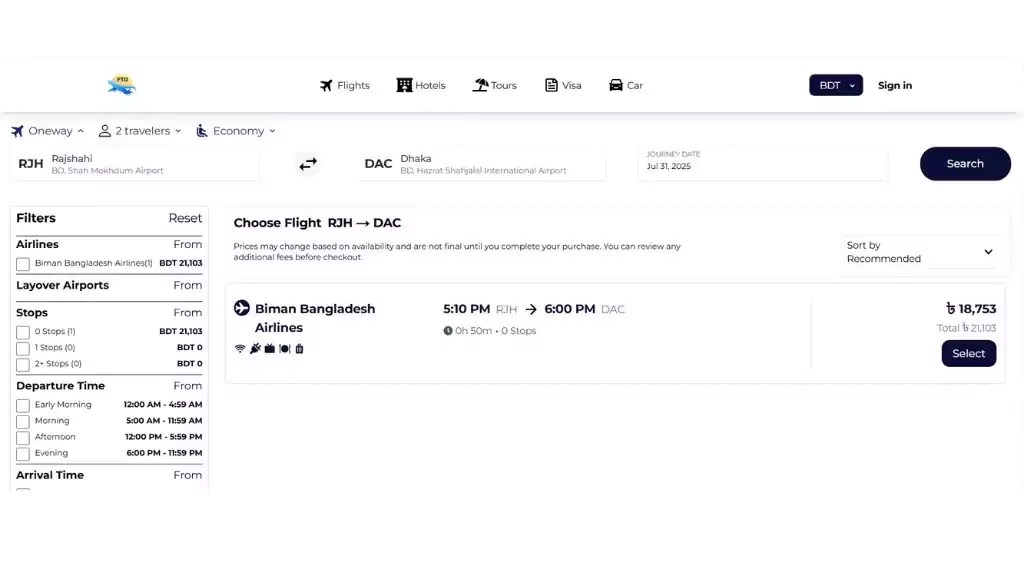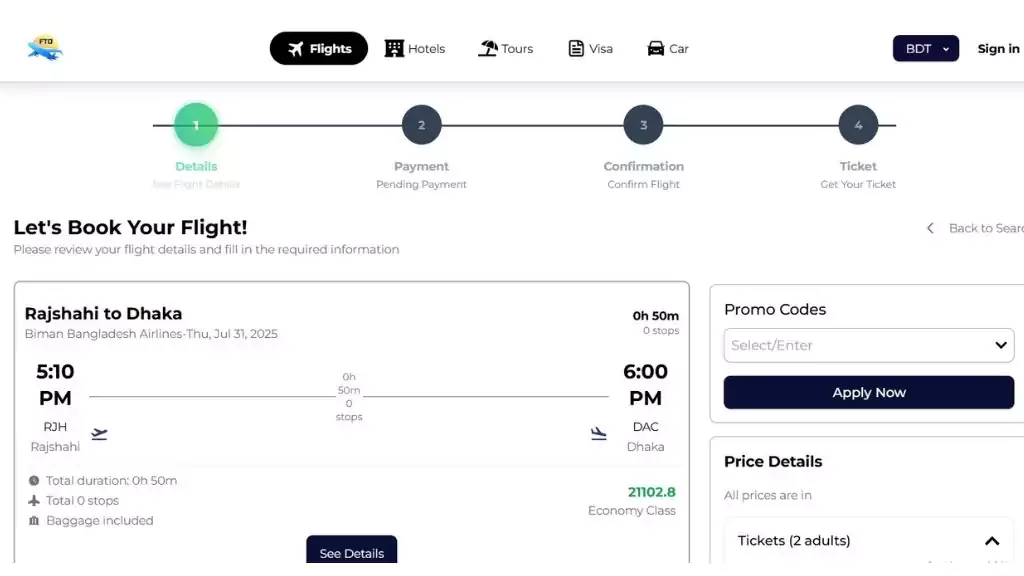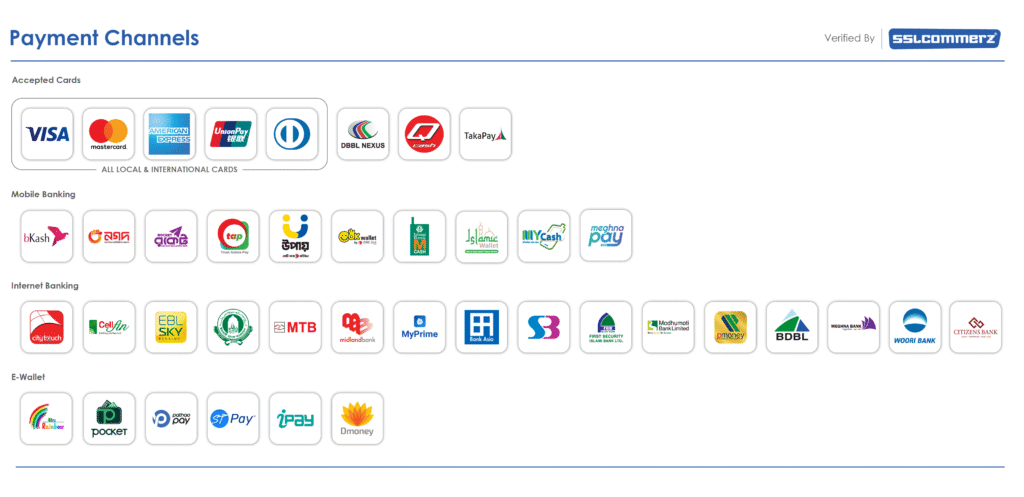Seamless bookings, real-time data, global reach—travel API integration is the engine behind today’s smartest B2C and B2B travel portals. The right APIs can turn any platform into a powerhouse.
In today’s fast-paced travel industry, travel API integration has become the backbone of modern online travel agencies (OTAs), tour operators, and B2B wholesalers. Whether you are running a consumer-facing booking engine or a corporate travel platform, APIs enable you to connect directly with airlines, hotels, car rental companies, and global distribution systems (GDSs). This ensures real-time access to availability, dynamic pricing, and instant booking confirmations.
For travel businesses in Bangladesh and beyond, adopting the right travel booking API can transform customer experience, reduce manual processes, and open new revenue streams. In this article, we’ll explore the Top 10 Travel Booking APIs that can empower your B2C and B2B travel portals in 2025 and beyond.
Why Travel API Integration Matters
Modern travelers expect seamless booking experiences—instant search results, accurate fares, and secure payments. A well-executed travel API integration provides:
- Real-time inventory: Live data for flights, hotels, buses, and cars.
- Global reach: Access to GDS integrations, including Travelport, Amadeus, and Sabre.
- Automation: Minimized manual effort in managing bookings.
- Scalability: Ability to serve both B2B sub-agents and B2C customers.
- Enhanced user experience: Fast, mobile-friendly booking flows that meet Core Web Vitals standards.
By choosing the right travel APIs, agencies can optimize operations while enhancing profitability. Now, let’s review the top 10 APIs reshaping the industry.

Top 10 Travel Booking APIs for B2C & B2B Portals
-
FTO Travels B2B Portal
FTO Travels is a proprietary B2B travel portal designed specifically for travel agencies in Bangladesh and the broader South Asian region. While it does not offer directly API integration, the platform provides a comprehensive and localized solution that meets the unique needs of regional travel businesses.
Why Choose FTO Travels?
- Centralized access to flights, hotels, and holiday packages in one user-friendly portal
- Competitive regional fares, especially for South Asian routes
- Integrated with major GDS providers like Travelport and Sabre for a wide range of inventory
- 24/7 local support from a dedicated team based in Bangladesh
- Customizable options tailored for B2B agencies of all sizes
FTO Travels is an ideal choice for agencies seeking a reliable, affordable, and regionally relevant travel solution, without the need for technical integration.
Amadeus is one of the most widely used APIs in the travel industry. With robust coverage of flights, hotels, and rail services, Amadeus powers thousands of OTAs worldwide.
Key Benefits:
- Advanced flight search and low-fare calendar.
- Hotel booking integration with global chains.
- Multi-language support for global markets.
- NDC-ready capabilities for future distribution.
👉 Learn more about Amadeus API integration in our blog on NDC in the Travel Industry.
Travelport (Galileo, Worldspan, and Apollo) is a leading GDS provider connecting travel sellers with airlines, hotels, and cars.
Why Choose Travelport?
- Extensive airline partnerships.
- Fast search response times.
- Full support for multi-city itineraries.
- Effective GDS integration for global operations.
For agencies aiming for scalability, Travelport API integration is a strong choice.
-
Sabre API Integration
Sabre is another global leader in travel distribution. Its APIs allow agencies to access flights, hotels, and ancillaries through a single platform.
Advantages:
- Comprehensive flight schedules and availability.
- Robust fare management tools.
- Integration with corporate travel solutions.
- Compatible with B2B and B2C models.
📌 Read about how Sabre enhances travel agencies in our guide: 5 Reasons to Choose FTO Travels.
-
Mystifly API
Mystifly specializes in global airfare distribution with a focus on consolidators and B2B wholesalers.
Highlights:
- Competitive airfares across multiple regions.
- Multi-currency and multi-language support.
- Ideal for OTAs targeting international markets.
- Great choice for sub-agent distribution networks.
-
TripJack API
Based in India, TripJack offers airline and hotel booking APIs tailored for B2B travel portals.
Key Features:
- Strong focus on South Asian routes.
- Low-cost carrier connectivity.
- White-label booking engine options.
- 24/7 support for travel partners.
-
Booking.com API
A must-have for hotel and accommodation providers, the Booking.com API gives access to one of the largest hotel inventories in the world.
Why Use It?
- 28+ million accommodation listings.
- Dynamic pricing and promotions.
- Easy integration with OTAs.
- Works seamlessly for B2C customer platforms.
-
Trawex API Suite
Trawex provides APIs for flights, hotels, cars, and holiday packages.
Advantages:
- All-in-one suite for multiple travel services.
- Affordable integration for startups.
- Customizable booking flows.
- Strong support for SMEs and mid-size OTAs.
-
TraveloPro API
TraveloPro is a growing player in the travel tech market, offering diverse integration options.
Highlights:
- Hotel, flight, and bus booking APIs.
- Integration for B2C & B2B models.
- Strong backend for agent commission tracking.
- Scalable for regional and international agencies.
-
NDC-Enabled APIs
New Distribution Capability (NDC) is revolutionizing the way airlines sell tickets. NDC APIs enable agencies to connect directly with airlines, bypassing traditional GDSs when necessary.
Benefits:
- Access to exclusive airline content.
- Personalized offers and ancillaries.
- Future-proof distribution method.
- Better margins for agencies.

Detailed Insights About Travel API Integration:
Travel API Integration Workflow
The process of integrating a travel API typically involves several critical steps:
- Requirement Analysis – Define whether you need flights only or multi-service integration (hotels, cars, tours, etc.).
- API Access & Documentation—Request access credentials and technical docs from providers like Amadeus, Travelport, or FTO Travels.
- Development & Coding – Connect your booking engine to the API using REST or SOAP protocols.
- Testing & Quality Assurance – Run sandbox tests for fares, seat availability, booking confirmation, and cancellations.
- Deployment & Go-Live – Move from sandbox to production for real-time transactions.
- Monitoring & Optimization—Continuously track uptime, booking errors, and latency to maintain high performance.
Hosting & Server Infrastructure for Travel APIs
Since APIs handle thousands of queries per minute, your backend infrastructure must be robust and scalable:
- Dedicated or cloud hosting (AWS, Azure, Google Cloud) for reliability.
- Load balancers to manage heavy traffic across servers.
- PCI DSS Compliance to securely process payments.
- Caching layers to reduce repetitive API call loads.
- Auto-scaling servers to handle booking surges during peak travel seasons.
- 24/7 monitoring & security to quickly detect breaches or downtime.
Key Considerations Before Hiring a Travel API Partner
Selecting the right integration partner ensures seamless deployment and long-term ROI:
- Experience with GDS APIs (Amadeus, Sabre, Travelport) and regional APIs.
- Customization capabilities to align with your business model.
- 24/7 post-deployment support for issue resolution.
- Transparent pricing without hidden charges.
- Security Compliance (GDPR, PCI DSS, SSL).
- Client references & case studies to validate credibility.
How to Choose the Right Travel API Provider
Selecting the right travel API provider is a crucial decision that can significantly impact the performance and profitability of your travel platform. When comparing different providers, it’s essential to carefully evaluate several key factors to ensure the solution aligns with your business goals and operational needs:
- Coverage: Assess the breadth of services offered by the API. Some providers specialize in flight data only, while others offer a more comprehensive portfolio, including hotels, car rentals, travel insurance, and vacation packages. The more complete the coverage, the better positioned you’ll be to offer a one-stop travel solution to your customers.
- Pricing Model: Understand the provider’s pricing structure—whether it’s transaction-based (you pay per booking or search), subscription-based (fixed monthly or annual fees), or a hybrid of both. Consider your expected volume and revenue model to determine which pricing approach provides the best value and scalability for your business.
- Scalability: Evaluate whether the API can handle increased load as your platform grows. Look for providers that offer robust infrastructure, support for high traffic volumes, and flexible service tiers that can scale with your business over time.
- Integration Support: Strong technical support and developer resources are critical. Check if the provider offers detailed API documentation, SDKs, sandbox environments for testing, and responsive technical support teams. These resources can significantly reduce your development time and ensure smoother implementation.
- Localization Advantage: If your business targets a specific region, consider a provider with localized features. Regional APIs like FTO Travels API often offer advantages such as support for local currencies, tailored fare structures, region-specific inventory, and faster deployment due to compliance with local regulations and preferences. This can give you a competitive edge in your target markets.
By evaluating these factors carefully, you can choose a travel API provider that not only meets your current needs but also supports your long-term growth and operational efficiency.

FAQs
- What is travel API integration?
Travel API integration connects travel businesses with airlines, hotels, or other suppliers via software interfaces, enabling real-time booking. - Why is Amadeus API integration popular?
Because it provides comprehensive coverage of flights, hotels, and ancillary services, with strong global partnerships. - What is Travelport used for?
Travelport API integration allows agencies to access a broad inventory of flights, hotels, and cars with reliable GDS integration. - How does the Sabre API help travel agencies?
Sabre API delivers flight schedules, availability, and ancillaries, making it ideal for B2B and B2C travel portals. - Why should we choose the FTO Travels API?
FTO Travels API offers localized support, competitive pricing, and seamless GDS integration for agencies in Bangladesh, ensuring both B2C and B2B growth. - Can the Booking.com API be used in a B2B portal?
Yes, Booking.com API provides access to millions of listings, making it suitable for both B2C websites and B2B agent platforms. - Can bKash or Nagad be used with travel booking APIs?
Yes, platforms can integrate bKash or Nagad for mobile payments, especially for B2C users. These can be connected alongside traditional card gateways to offer more flexibility to local customers. - How do NDC-enabled APIs differ from GDS integration?
NDC APIs connect directly with airlines for personalized content, while GDS integration aggregates multiple suppliers for broad inventory. - What should I check before integrating a travel API?
Coverage, scalability, cost, ease of integration, and customer support are key factors. - How do I optimize travel API integration for speed?
Use caching, optimize queries, and follow Google’s Core Web Vitals to ensure fast, seamless user experiences.
Selecting the right travel booking API is essential for building a competitive and future-ready travel portal. From Amadeus API integration to FTO Travels API, each solution offers unique strengths. While global giants provide extensive reach, localized solutions like the FTO Travels API give you a competitive edge in Bangladesh and South Asia.
👉Ready to scale your travel business with seamless travel api integration? Contact FTO Travels today, explore our API integration services, subscribe to our blog for the latest insights, or check out our article on NDC in Travel Industry to stay ahead.
